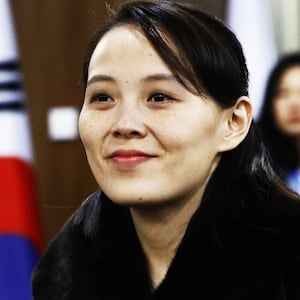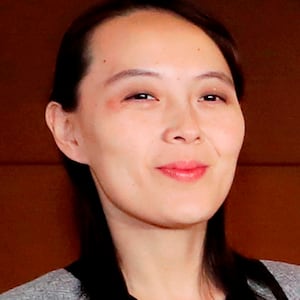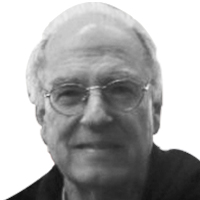North Korea leader Kim Jong Un’s younger sister Kim Yo Jong has a blunt message for U.S. officials looking for dialogue with the North: Don’t get your hopes up.
With a long record of attacking both the U.S. and South Korea on behalf of her brother, Kim Yo Jong warned the U.S. against even “greater disappointment” in response to U.S. national security adviser Jake Sullivan’s seeming optimism about prospects for renewed talks.
Kim Yo Jong, who greeted President Joe Biden in March with the advice that the U.S. “had better refrain from causing a stink,” could not have timed her latest declaration more adroitly. It came just as the U.S. envoy on North Korea was in Seoul meeting South Korea’s President Moon Jae-in, an ardent advocate of resuming long-stalled dialogue with the North.
Yo Jong spoke out after her brother had wrapped up a meeting of the central committee of his ruling Workers’ Party stressing the need for vastly improving the economy but pointedly keeping the door open, calling for preparations “for both dialogue and confrontation.”
It was that remark that seemed to encourage the U.S. national security adviser, Jake Sullivan, who told ABC that Kim Jong Un’s comments were “an interesting signal and we will wait to see whether they are followed up with any kind of more direct communication to us about a potential path forward.”
Kim Yo Jong’s comments could hardly have been more direct.
“A Korean proverb says that ‘In a dream, what counts most is to read it, not to have it,’” Pyongyang’s Korea Central News Agency quoted her as saying. “The U.S. may interpret the situation in such a way as to seek a comfort for itself” but “the expectation, which they chose to harbor the wrong way, would plunge them into a greater disappointment.”
After warmer than expected words from Vladimir Putin after their summit last week, and relative silence from Beijing since Biden was elected, Kim Yo Jong is now probably the U.S. president’s most outspoken foreign foe.
Known for her acerbic barbs at both the U.S. and South Korea, Kim Yo Jong held back from the kind of truly nasty comments that might rule out resumption of negotiations altogether. In fact, there was reason to believe that she was deliberately holding out the possibility for talks, basically suspended after the failure of the Hanoi summit between then President Donald Trump and Kim Jong Un in February 2019.
In his meeting with American envoy Sung Kim, South Korea’s President Moon called on the U.S. to resume the “virtuous cycle” of talks with the North. Moon, whom North Korea has denigrated as almost a secondary if not irrelevant figure in the process, seemed resigned to the reality that the U.S. must take the lead with the North despite his four meetings with Kim in 2018 and 2019.
Having staked much of his prestige on North-South reconciliation, the South Korean president hoped for relations between the U.S. and North Korea to get back on “a certain track,” according to South Korea’s Yonhap news agency.
If Yo Jong’s remarks were in immediate response to Sullivan’s comments, they also were a way to answer Sung Kim’s remark in Seoul the day before that the U.S. was ready to resume talks with the North, as Biden had promised in his White House summit with Moon in May. Biden at the summit sought to advance a fresh approach after the failure of both “strategic patience” as practiced during the presidency of Barack Obama, while Biden was vice president, and then Trump’s three meetings with Kim in 2018 and 2019 that got nowhere on denuclearization despite a blizzard of publicity.
A major stumbling block may be the decision on whether the U.S. and South Korea stage annual military exercises this summer while sticking to demands that North Korea give up its nuclear program, which Kim Jong Un has no intention of doing. North Korea is also demanding the U.S. get rid of onerous sanctions imposed after its nuclear and long-range missile tests, last conducted in 2017.
Donald Trump, after his first summit with Kim Jong Un in June 2018, canceled the joint exercises that year. North Korea has often called for the withdrawal of America’s 28,500 troops from South Korea, for ending the U.S.-South Korean alliance, and for shutting down the UN Command, formed at the outset of the Korean War in 1950.
U.S. defense people believe the war games are vital to coordinate between U.S. and South Korean forces. “Our forces have got to be ready to fight tonight,” a Pentagon spokesman said. “We are constantly looking at the training events to make sure that they are appropriate and they are properly scaled to the threats and the challenges.”
The fact that Kim Yo Jong spoke out at such a timely juncture confirmed the view that she ranks as possibly the second most powerful person in North Korea even though she does not have the titles commensurate with her real influence.
No longer a member of the politburo of the party, she functions as deputy director of the party’s propaganda committee. She’s believed, however, to control the infamous Bureau 39, in charge of reaping desperately needed funds through illicit drug trade, counterfeiting, and weapons smuggling.
Though dropped from the party politburo, Yo Jong presumably attended the recent confab of the party central committee at which her brother frankly acknowledged the country’s severe economic difficulties, citing “unfavorable subjective and objective conditions and environment” and scolding bureaucrats for their failures.
Speculation is rife that Kim Yo Jong may be in line to succeed Kim Jong Un in case he is finally incapacitated by a number of illnesses. Kim was recently seen in a video distributed by North Korea as having lost considerable weight after another prolonged absence from public view—a sign either that he’s been ill, is recovering, or simply dieting.
As party general secretary, Kim has created the position of first secretary but has yet to say who’s got the job. Lim Eul-chul, professor at the University of North Korea Studies, was quoted by Yonhap as saying Yo Jong ranks as “the second most powerful person in North Korea” despite her lack of a top-level title.
Yang Moo-jin, at the same university, described Yo Jong’s latest comments as “a demand that Washington come up with more incentives for Pyongyang to return to the negotiating table” rather than “a rejection of dialogue offers.”



